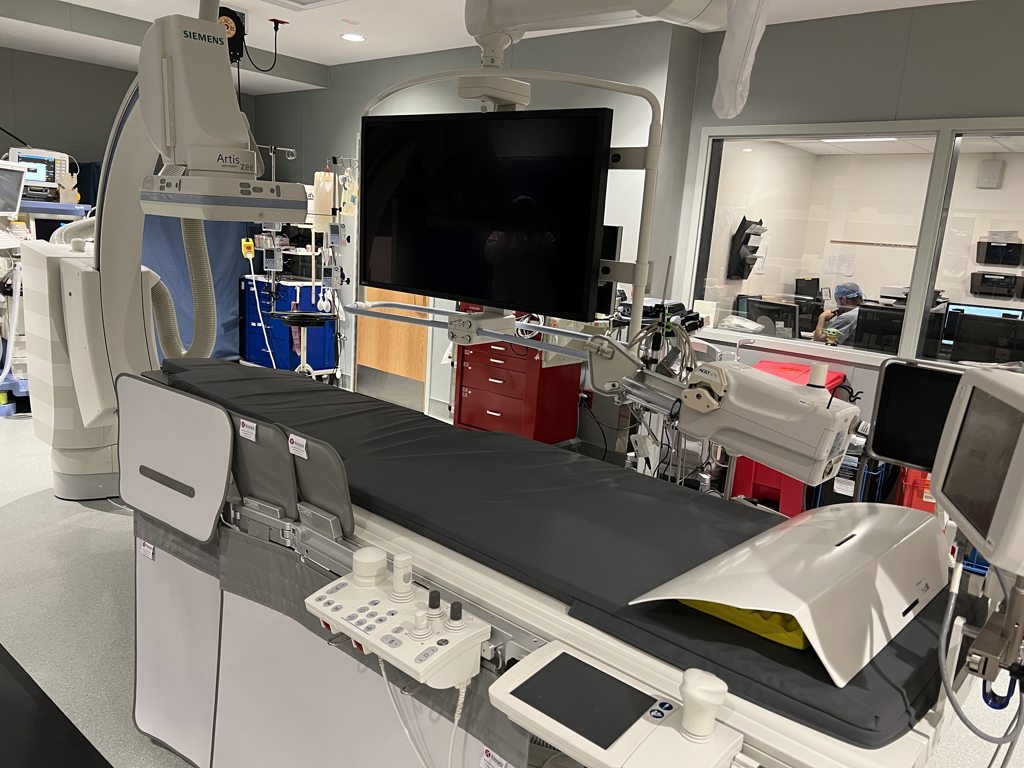Penn Highlands Huntingdon Brings High-End Technology to the Cardiac Cath Lab

As part of the $9 million investment to expand and enhance services at Penn Highlands Huntingdon, the Hospital is maintaining its high standard of interventional cardiology with the installation of a state-of-the-art angiography system. The technically advanced system incorporates an x-ray tube and detector technology, which is designed to improve minimally invasive therapy for many conditions such as coronary artery disease and stroke. The x-ray tube is designed to deliver sharp images for larger patients and steeper angles. The new system provides unmatched positioning flexibility that enables the medical teams at Penn Highlands Huntingdon to perform the most advanced cardiac catheterization, vascular and interventional radiology procedures. The advanced positioning enables the 3D-visualization of larger sections of anatomy. These sharply detailed images provide physicians with additional information to distinguish soft tissue when making their diagnoses while offering the potential to reduce procedural radiation doses.
“At Penn Highlands Huntingdon, we are committed to providing the most technically advanced diagnostic and therapeutic devices and systems to provide high-quality and progressive care, said Joe Myers, President of Penn Highlands Huntingdon. “This system allows our medical teams to see internal organs from many perspectives with access to more details. The ability to have more complete information leads to faster diagnosis and improved outcomes for patients.”
Angiography is a procedure that helps physicians visualize blood vessels in various parts of the body, including the heart, brain and kidneys. After a thin catheter is inserted into an artery leading to the desired body area, an iodine-based dye is injected to highlight the vessels when X-rays are taken. Angiography is often used to determine whether blood vessels are narrowed or blocked. It also makes it possible to combine diagnosis and treatment in a single procedure, as in patients who undergo surgery, angioplasty or stent placement.
People can reduce the risk of complications by choosing a cardiologist and hospital with extensive experience in cardiac catheterization. The cardiologists at Penn Highlands Healthcare perform more than 2,500 heart catheterizations annually to diagnose problems patients may have with their heart muscles, valves or coronary arteries. Problems with the heart can be serious, leading to heart attack, heart failure or even death. Heart catheterization is a lifesaving procedure. Most patients who have it done go on to lead healthy, full lives with the assistance of cardiac rehabilitation.
For more information, visit phhealthcare.org/cathlab.
